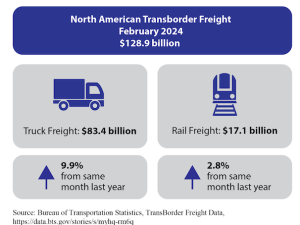A push to run more of the nation's truck fleet on cleaner, domestically produced natural gas is rapidly gaining momentum.
Suppliers like T. Boone Pickens ' Clean Energy Fuels , Royal Dutch Shell and China 's private ENN Group are scrambling to build natural gas fueling stations along U.S. highways, while Cummins-Westport Inc will begin later this year selling a 12-liter natural gas engine able to power the biggest trucks on the road.
Truck companies too, are enthusiastic - up to a point.
The trucks that will sport the new engine, made by a joint venture of Cummins Inc and Westport Innovations Inc , will have expensive tanks for storing compressed or liquefied natural gas. With the industry still reeling from an economic slump that pushed margins below 5 percent, truckers have little ability to make big bets on new equipment.
Customers like Procter & Gamble and building materials maker Owens Corning , however, are increasingly demanding that their products be hauled on cleaner trucks using cheaper fuel.
Natural gas trucks' greenhouse gas emissions are about 20 percent lower than those of diesel trucks. But truck companies must fork over an extra $40,000 to $80,000 per natural gas truck - a big markup considering a heavy-duty diesel truck starts at about $100,000.
President Barack Obama wants to begin a federal incentive program that would help pay for the new trucks, but budget woes make that unlikely.
Big natural gas-producing states such as Pennsylvania, West Virginia and Texas, as well as environmentally conscious California, offer programs to get heavy-duty, natural gas trucks up and rolling. But none foots the bill entirely, and in an era of fiscal tightening, truckers fear the subsidies may not last.
Replacing diesel with natural gas can save truckers about $1.50 per gallon, and experts say a truck that runs at least 80,000 miles a year could see a payback in two years. But factor in the cost of modifying maintenance facilities and the still unknown value for second-hand natural gas trucks and the math isn't so clear cut.
"We can't make the economics work," said Randy Mullett , a vice president at Con-way Inc , one of the country's largest trucking companies. "The upfront cost is too high."
Con-way is testing two compressed natural gas trucks in the Chicago area and plans to add three or four liquefied natural gas (LNG) trucks in Texas, where state incentives will help offset the added costs. But Mullett said fueling big rigs with natural gas is "not the slam dunk that it's presented to be."
Moving Beyond Trash
Heavy-duty trucks are big fuel consumers, running more than 130 billion miles a year in the United States and averaging about 6.5 miles per gallon, according to the American Trucking Associations . With about 200,000 such trucks sold each year, and turnover of fleet vehicles about every five years, the opportunity to reduce diesel fuel consumption and tailpipe emissions by switching to natural gas is huge.
New techniques unlocking vast reserves of natural gas from shale have produced a boom in U.S. supplies and driven prices down sharply, increasing the transportation industry's interest in using natural gas as its primary fuel.
Earlier this month, BNSF Railway Co said it would run some locomotives on liquefied natural gas to save fuel costs, and Lockheed Martin said it was developing new fuel tanks for ships, trains and trucks powered with LNG.
Heavy-duty truck maker Kenworth, a unit of Paccar Inc , has a "very large backlog" of orders for natural gas vehicles, according to national sales manager Andy Douglas . Cummins-Westport, meanwhile, has been growing about 30 percent a year, and the addition of the 12-liter engine should give it "a pretty good growth spurt for the next few years," said Jim Arthurs, the joint venture's presi








